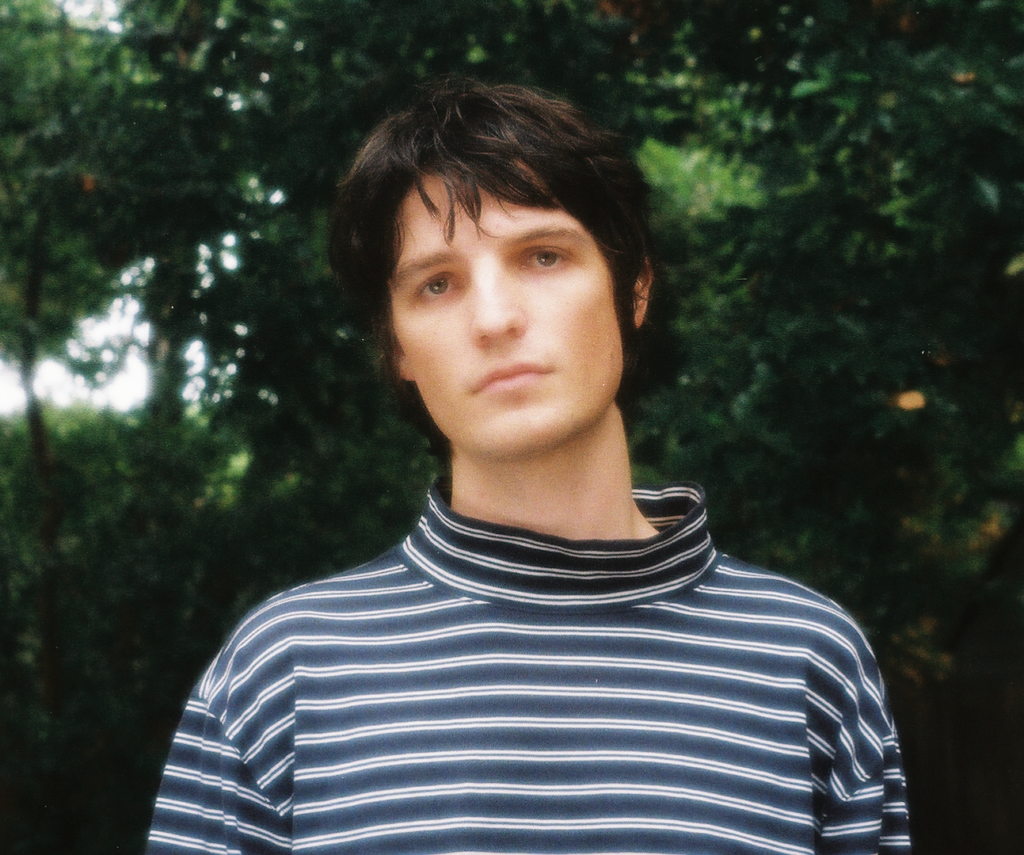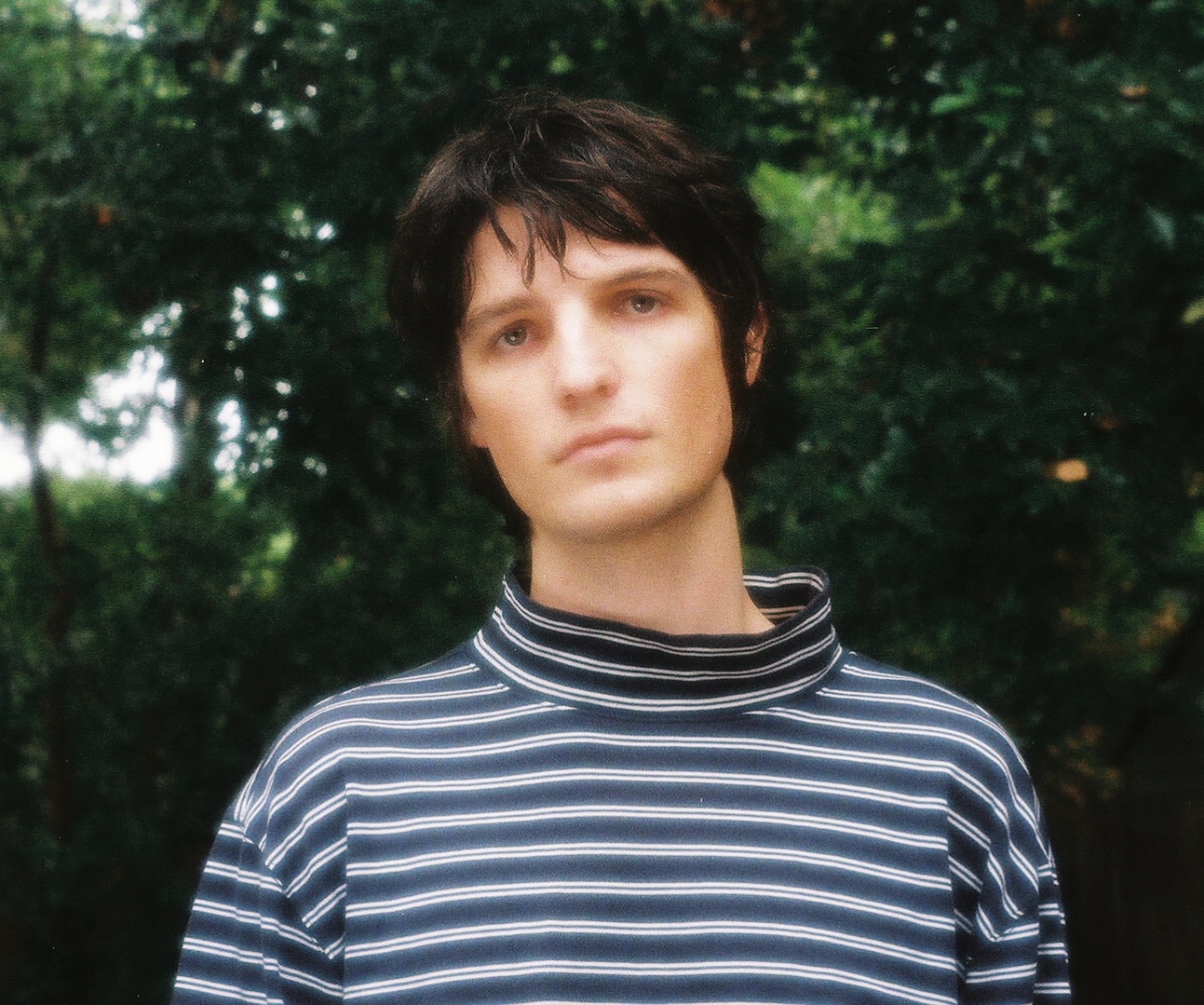When is a band…not a band?
It’s not a trick question, but it is a subjective one. There are musicians who some would consider solo artists who have always recorded under “band” names, and in fact, either live or in the studio do include other members, even as they remain creatively, one person’s vision—think Bright Eyes or Bon Iver. There are acts that initially presented as full-on bands that have morphed into an alias for an individual’s many artistic pursuits: Tame Impala today is Kevin Parker, and vice versa. Certainly, LCD Soundsystem is not LCD Soundsystem without James Murphy, but is James Murphy the totality of LCD Soundsystem? I could imagine arguments for and against that premise.
None of these so-called “bands”—all essential musical forces in the indie rock world and beyond—would exist without the presence of that one musician. But some musicians vigorously resist the idea of the word “project” to describe what they do, and insist that what they have is, in fact, a band. Austin Feinstein is in that camp, though the continual mutation of his outfit Slow Hollows over the past near-decade, including three lineup changes, a disbanding, at least one major sonic change, even his own name changing (then going back on that change), has meant that there is one constant in Slow Hollows, and lucky for us it’s a compelling one whose writing has only gotten richer over time: Feinstein himself. This week he returns, with a long-gestating fifth Slow Hollows album, Bullhead.
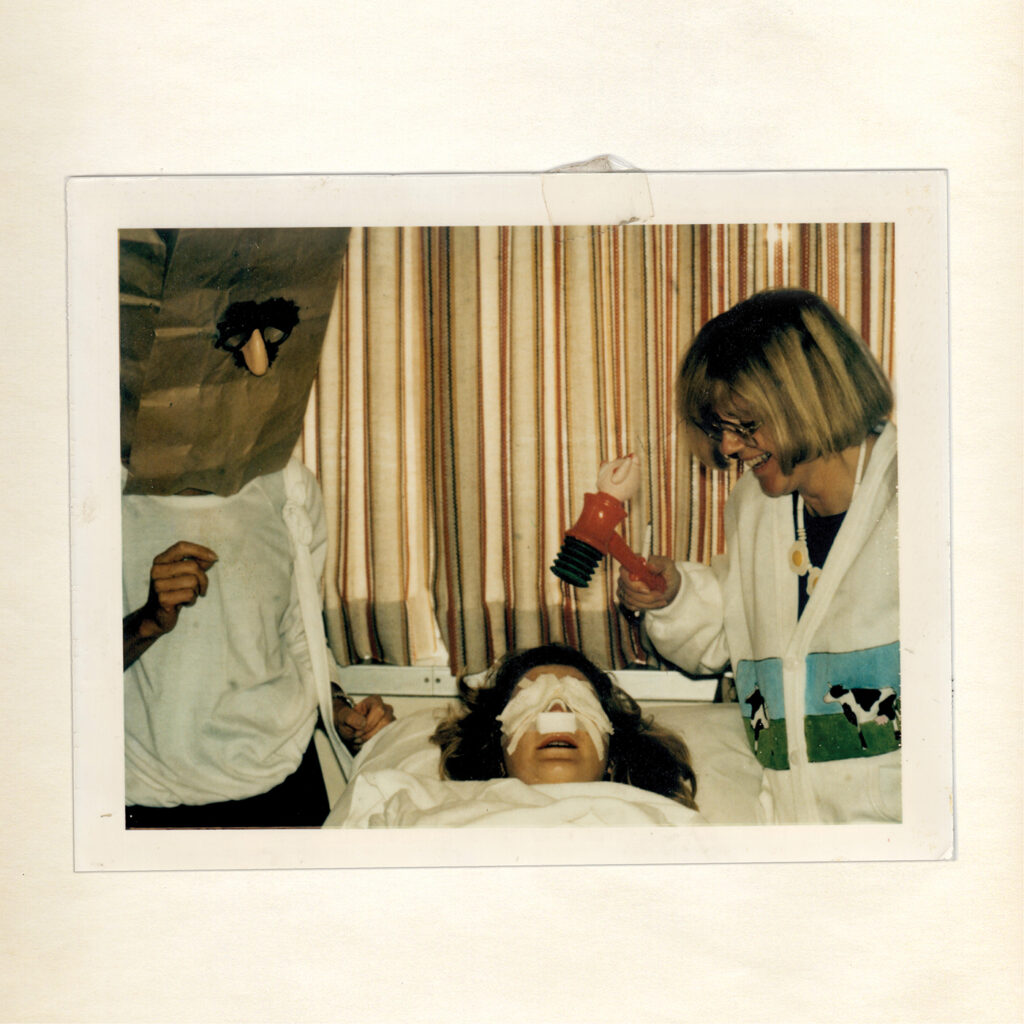
The last time I spoke to Austin, four and a half years who, it was a different world. Slow Hollows had a completely different lineup—save Austin—from the one that played on 2015’s second album Atelophobia and 2016’s Romantic, two records that propelled the teens who began their musical journey as part of the diaspora around the iconic DIY venue The Smell into a national spotlight, and gained a devoted following. But Austin threw fans a huge curve ball four in 2019, dropping a radically different sound in the form of Actors, a fourth album that leaned heavily into electronics and beats and, in some cases, full-on dance tracks. Feinstein was even using a different surname, Anderson, due to a family fallout. In the late 2010s, he’d grabbed more headlines as a collaborator with banner hip-hop and R&B names: Frank Ocean, Kevin Abstract, and, critically, Tyler the Creator, who did production work on Actors, and championed its bold change in sound.
Then, just to keep us guessing, what appeared to be a new phase for Slow Hollows ended. Only three months after Actors’ release, the band issued a statement saying that after a final tour, they would be disbanding. Band members expressed love for one another, but details on the reason for the split were, at the time, scant— Feinstein now attributes it mainly to fatigue—and saddened fans were shocked and understandably confused. And as soon as that ostensibly “final” Slow Hollows tour ended in March of 2020? A once-in-a-century global pandemic hit.
COVID did a number on Feinstein’s psyche, as it did on millions, and while in the early months of the pandemic, he was able to write a handful of affecting songs that bear the scars of that unsettling time, the Bullhead album has taken a long road to get here. That’s partly due to Feinstein’s own uncertainty over what he wanted to do, say, whether he even wanted to stick with music, and how being a “solo artist” even worked. He eventually concluded you can’t—or at least he can’t—do it alone.
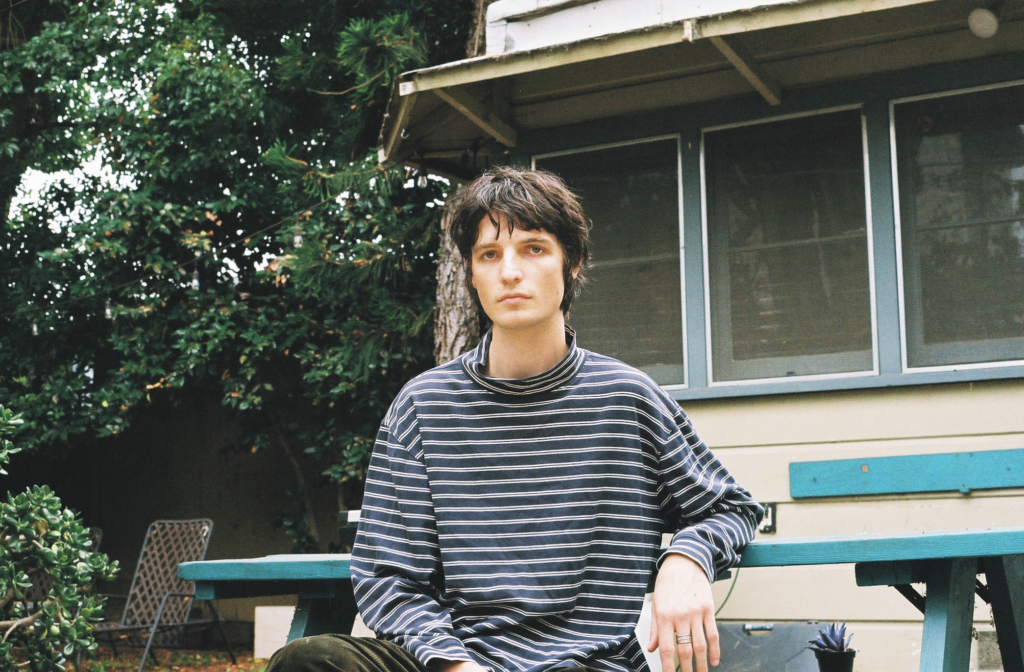
Enter Nick Noneman, a longtime friend and self-described fan of Slow Hollows from its earliest days, and someone who Feinstein says may know the band better than he himself does, as producer and engineer. The two were in agreement that the album would be a reset to the guitar-based music that Slow Hollows, pre-Actors, always had been. The result is beautiful and thoughtful and a bit older and wiser: nine tracks on which Feinstein centers his insecurities and stubbornness (hence the album title), but also his determination to go on. “Don’t give up” he tells himself on “The Villain”; and on “The World Is Waiting”: “Flipped the mattress, changing clothes…I guess I’ve grown.”
He’s also found love, and it’s ever-present on Bullhead. Since 2022, Feinstein has been dating actress Sophie Thatcher (Yellowjackets) and the relationship made its mark on “Soap,” a shimmering, introspective standout he wrote for Thatcher. “I just wanna be your everything,” it declares, while “Tired” offers, “I wish I knew you every step along the way…I’m tired of everybody but you.”
Feinstein has long seemed something of an old soul, and still only 26, he’s been through more iterations and hiatuses and reconfigurations and musical excursions with Slow Hollows than many artists twice his age. But with Bullhead, a new manager in former bandmate Aaron Jassenoff, plus a live band that includes Nick Noneman and early bandmate Nich Santana returning on drums, Feinstein and Slow Hollows version 3.0 are in a good place. And remember—it’s a band. Don’t let anyone tell you differently.
VMAN: Austin! It’s been such a long time—four and a half years—since we last talked. And a couple of those seem like kind of lost years.
AUSTIN FEINSTEIN: Completely.
VMAN: And of course at the time we were talking Actors and the new band, and a pretty radical evolution for Slow Hollows. But of course, three months later, you guys announced you were disbanding. I’m still not totally clear on the reasons for it!
AF: Pretty much what happened was just kind of a burnout? Kind of amongst all of us. I don’t really even know why? I just still remember feeling very proud of that record, and the work that Daniel [Fox] and I had done. I don’t know, we had come off a supporting tour, playing really big venues. And it was really cool, but there was just kind of something in the air, where we just—something just felt kind of funky, and sort of—I think we were just tired. I mean we all still love each other. But I think we all just wanted to kind of do something else? It was funny and kind of weird the way it happened, but the three members at the time, Daniel, Jackson [Katz] and Aaron [Jassenoff] just came to me and said, “We’re a little bit tired, we don’t really know if we want to keep doing this.” And I was like, “Funny you should say that, cause I have kind of been feeling the same way.” And then we had that final tour in 2020, we did that, played a show, and then the pandemic happened the next day.
VMAN: Also in 2019, you were using your mom’s name “Anderson” as your last name, and you told me, super openly, there was kind of a family falling out, and you didn’t really feel like using Feinstein at the time because of the situation with your dad’s side of the family. So, I—assume—that’s changed? Right?
AF: Uh, yeah…
VMAN: Or not? [laughs]
AF: Yeah, I think I was just searching for something that would maybe make me feel a little bit better. And it didn’t really do anything for me, changing my name. And, the more I felt about it, when people would refer to me as “Anderson” it felt like I was, pretending? So, I just went back to it. It’s fucking confusing, and stupid, but I’m just gonna own it, and roll with it.
VMAN: And your last show with the old band, at the Echo in L.A., March of 2020, was literally right before Covid.
AF: Yeah, well we got lucky, I think March 13th was the last day that shows were allowed to happen in L.A. and we landed on that day. So we were…
VMAN: Whoa.
VMAN: How were things for you for the first six or nine months after that? Did you right away start writing? I mean, were you living with someone? You didn’t have your current girlfriend at the time, right?
AF: No, I was living by myself. And it was not an easy time, certainly. I mean I was still writing songs, but I just kind of didn’t really know what I was doing. [chuckles] I thought that maybe it would be a solo record or something, but songwriting became really hard at that point. Having an identity, and a context around the stuff that you’re doing, it’s really—feeling like you don’t have any context you exist within when you’re writing a song made me feel a little bit crazy.
VMAN: Did any Bullhead songs get written then?
AF: Yeah, There’s a song called “Tired” on Bullhead that was very early pandemic. The song “Bullhead” was early pandemic as well—pretty much all of them, but they took a couple of years to flesh out.
VMAN: Well “Homebody” certainly feels like it was created back then, what’s the lyric, “I’m down, real down, help me out somehow”?
AF: Yeah that—now that you say that, that was the first song I think that I started writing. That came right, probably in the week after we played our last show, I was just kind of making little demos, and it came out of that.
VMAN: Was there anyone who was a sounding board for you while you were writing in that time?
AF: There really wasn’t, which is why it made it all the more difficult, because that’s a very necessary thing, in making music. Even if somebody isn’t really saying anything but just having someone else in the room. You know? So I was constantly working on them for probably, three years? I think the thing I was most focused on was lyrics, and I just kind of ended up driving myself crazy in making them into what I thought would be the perfect—whatever a “perfect” version of something is, I don’t necessarily think that is even an achievable thing. But yeah, I think I was just constantly overthinking.
VMAN: I read one place where you even considered leaving music as a career.
AF: Oh yeah. [laughs] Yeah, I mean I feel like everybody experiences that, it’s just— especially without a sounding board, it’s just, you quit to nobody. You quit yourself. Every once in a while. But then you get used to it.
VMAN: Well the band going its separate ways followed immediately by a pandemic must have been rough.
AF: Yeah it didn’t feel great! You know, it’s funny the way things kind of happened—now my old bass player Aaron is my manager.
VMAN: Oh is that right?
AF: Yeah he got into the managing game like right after we quit. And he had connections, but he’s a really hard-working, smart dude. And landed exactly where I think he is meant to be.
VMAN: You mention trying to get things perfect—this is a longstanding issue with you, even referenced in the title of your early album Atelophobia [fear of imperfection]. Has [producer] Nick Noneman helped you with that tendency?
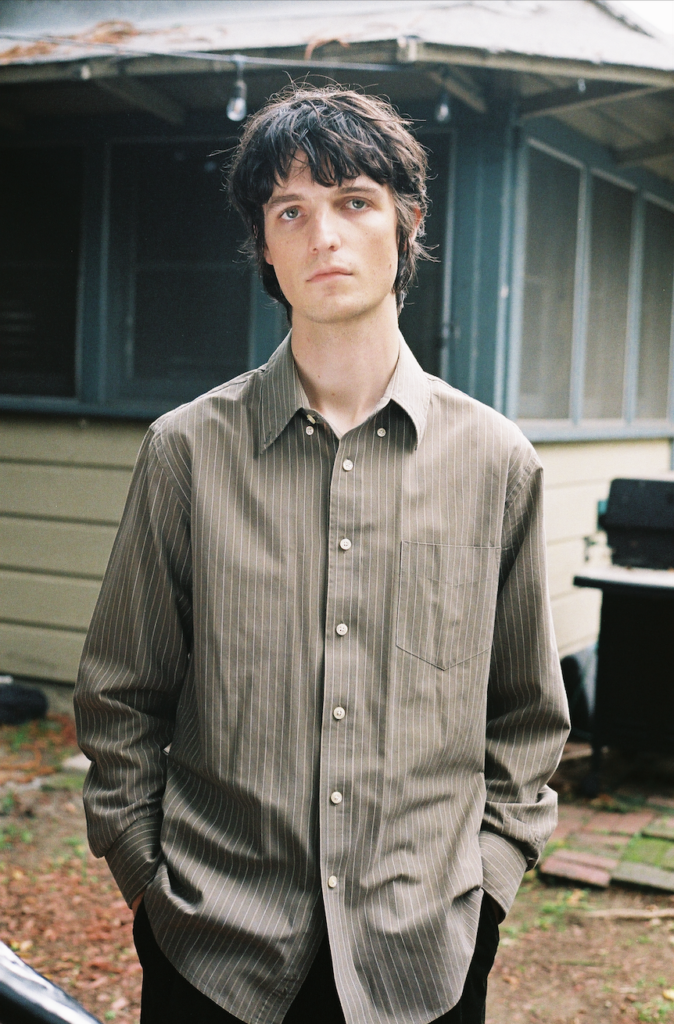
AF: I think Noneman helps me in that regard, I mean I am still that way. And it’s not for a good cause. It’s never like, the—endlessly working on something, or thinking that I am gonna make it perfect never yields good results for me. Ever. And it’s always the thing that I’ve given no thought to that maybe sounds better! Or is a better idea! But yeah, sometimes it’s tough to know what headspace you want to be in when you’re writing, and I’ve tried to train myself to not set myself in some sort of “You’re doing the thing now” headspace. And maybe just think of it as a joke, or take it un-seriously. And try not to work it to death too much, because then it will just sound like it’s worked to death.
VMAN: You’ve known Nick for years, and I know that was important.
AF: Yeah, he is just a comfortable person to be around, for me, just because I’ve known him for a long time. And the spirit of what I wanted to do—keeping it a very small circle, very comfortable, just working with him reflected that. And he’s just good at what he does! I even kind of trust his opinion better than my own, sometimes, when it comes to the way that Slow Hollows might sound.
VMAN: This record represents a return to the guitar-centric identity of Slow Hollows, but it doesn’t feel like a retread of where you were in 2015 or ’16. Would you sign onto the statement, “Slow Hollows is whatever I want it to be?” Or, do you feel like, “Slow Hollows established an identity, a musical identity, and why go too far afield from that?”
AF: Yeah, I think that it certainly had a musical identity that I didn’t really recognize at the time? Maybe, honestly just because I was so young when a lot of these records were being made? With Atelophobia, I was still in high school, and it was hard to really even know what I was doing. I mean, I was getting something out, and recording these things just because I felt like it was what I needed to do. Thinking of it being like a sort of identity that you are kind of building up, I never really understood that.
VMAN: This is a big and kind of philosophical question. I am thinking of leading this article with the question, “When is a band not a band?” Or put another way, “What makes a band, a band?” There have been “bands” over the years that are essentially, creatively, one person—Conor Oberst used to insist Bright Eyes was a band, even if the world saw it as him. The first time I interviewed Tame Impala they very much presented as a band. We now know it’s essentially Kevin Parker’s alias. Bon Iver—band or one guy, you know? And in your case, you are the only constant in Slow Hollows. So why isn’t it a “project?”
AF: I think it boils down to how it makes the person whose project it is, feel. You know, and just when you call it something, if you call it a band, and it puts them at ease? Then it’s probably a band. That’s how I feel. When somebody refers to it as my solo project, or anything other than that, I just, somehow kind of wince at the idea of that. There’s really no other explanation than it gives me peace of mind, and I relate to the feeling of it being a band. It’s just kind of that unexplainable thing. And also I think it maybe boils down to, “Would it even exist if the people who are in the band weren’t there?” You know I can write all the songs, I can—whatever. But can I go on tour? Can I record the record? Do I even have the spirit to keep going if the people who are in the band aren’t around anymore? I think it just boils down to a feeling.
VMAN: So if you meet a stranger and they asked what you do, do you say, “I’m a musician, I record as Slow Hollows?” Or would you more likely say, “I’m in a band called Slow Hollows.”
AF: I always say, “I’m in a band” and then if they say, “What do you do?” I say, “I play guitar.” And they go, “Oh. Who sings?” and I go, “I also sing.”
VMAN: See so that’s you being humble, right? Kind of downplaying what you are, no?
AF: I think there’s some of that and then there’s a bit of embarrassment. I’ve always kind of felt embarrassed about what I do, for some reason? I don’t know why. I think cause it’s a very magical, silly little thing. You know, people have a lot of opinions about it too, so that’s something.
VMAN: I love “Idle Hands” cause it just bursts forth with this big opening riff and jolts the record half way through. And I saw it’s actually a song you’ve had around since Romantic [2016]?
AF: Yeah we had recorded the record Romantic, and I felt like it was a really hard process, to record that one. But I kind of always remembered that song, and kind of liked the spirit of it. So when I was doing these Bullhead songs, a lot of them were pretty slow, and I had just always pictured that song as being faster, as kind of an upper. I just remember sitting around, just playing guitar—I was with my girlfriend Sophie [Thatcher] actually. We were just watching TV, and I was playing stuff, and I played that sort of beginning riff sort of thing, and she was like, “That’s really pretty. You should record that on a voice memo.” And then I thought, “Well maybe I should just do this fucking song then.”
VMAN: Speaking of Sophie, there are songs on the album that feel like they are directed at an individual. You say, in “Tired”, “I’m tired of everybody but you” “I wish I knew you every step of the way.” You say, “I’ll be the place where you hide every day” in “Dreams Go,” and in “Soap” you say, “I just want to be your everything.”
AF: Yeah. There are a lot of songs that are about her. I mean “Soap” is completely about her. It’s her nickname as well. That was the last song I wrote for the record and the lyrics. It came in like five or ten minutes. It was very, very quick. And that was the last song I wrote, before going in. But a lot of lyrics are about her. I ended up re-writing the lyrics on the record so many times over the course of however long I was working on it. So yeah, a lot of it did end up directed at her. Some of the other lyrics aren’t necessarily about an individual, or they are just about or were inspired by other individuals in my life.
VMAN: You guys met in 2022. Do you think it’s safe to say the relationship has been an impetus to get this record done?
AF: Completely. I don’t think that it would have gotten done in the time frame that it did, had I not met her. I think I would have just kind of stayed in that lull. You know? I had—the songs were just kind of dark-sounding, lyrically? And she brought, it sounds corny, a lot of light into my life.
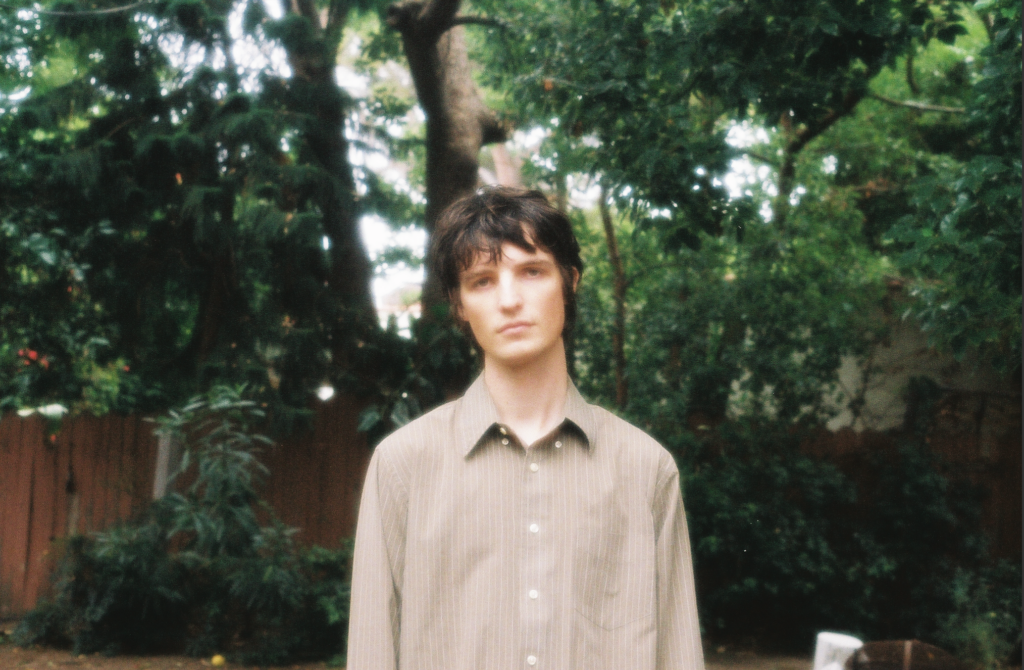
VMAN: That’s not corny!
AF: It’s true!
VMAN: I am a big believer in things like that. I love the closer, “A World Is Waiting,” with lines like, “flipped the mattress, changing clothes, something’s missing, I guess I’ve grown.” It feels like you’re referencing this long and winding nearly ten-year trip with Slow Hollows.
AF: Yeah, I think it was about I think it just was about wanting to grow up a bit, you know? It was kind of a wake-up call song, about being okay with—or not being okay, but just sort of getting move on and just sort of not seeing things in a dark light, you know? I think that’s maybe one of my favorite songs that I’ve written just cause it felt like I was able to say what I wanted to say, and how I was feeling, sort of about everything in my life.
VMAN: As somebody who has already quote-unquote “changed his clothes” in this career quite a bit, at only 26—are you at this particular moment, with the tour starting in only a couple of weeks, excited? Anxious? Relieved? That a new record is about to drop and you’re doing this again? You’ve said before that playing live isn’t necessarily your favorite thing, but how are you feeling about this return?
AF: I feel relieved. I think that’s a good way of putting it. I feel excited to be playing with the dudes that are playing with me? I’ve got three Nicks in the band!
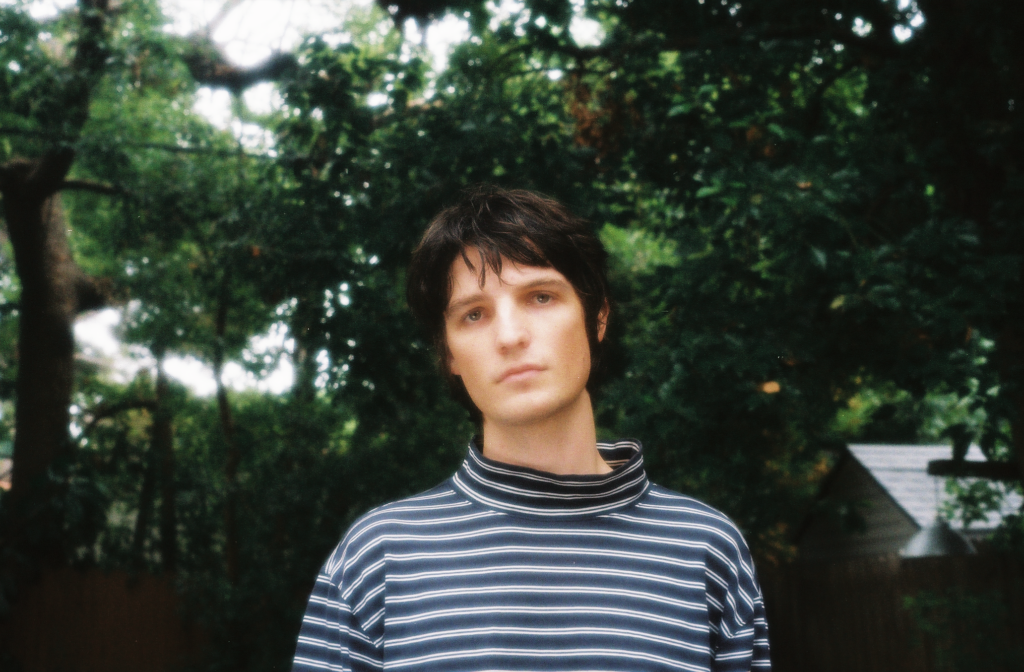
VMAN: [laughs] That’s Nick Noneman, your former drummer Nich Santana, who’s back, and who’s the third?
AF: The third Nick is Nick Minor, who plays bass. From Reno, Nevada.
VMAN: Wow, and your publicist is named Nik too. It’s like a rule to be in your life you’ve got to be Nick. I feel like I should be Nick Norris.
AF: I know, it’s kind of extreme! [laughs] But I do feel good about it. I feel excited, and relieved, I feel like I am trying not to put too much pressure on what is happening, and I am just kind of trying to be happy that I am even able to do this. You know, not everybody gets the chance to do this.
Slow Hollows’ ‘Bullhead’ is out March 8 . The band begins a U.S. tour on March 14, kicking off in Santa Ana, California.
Discover More
